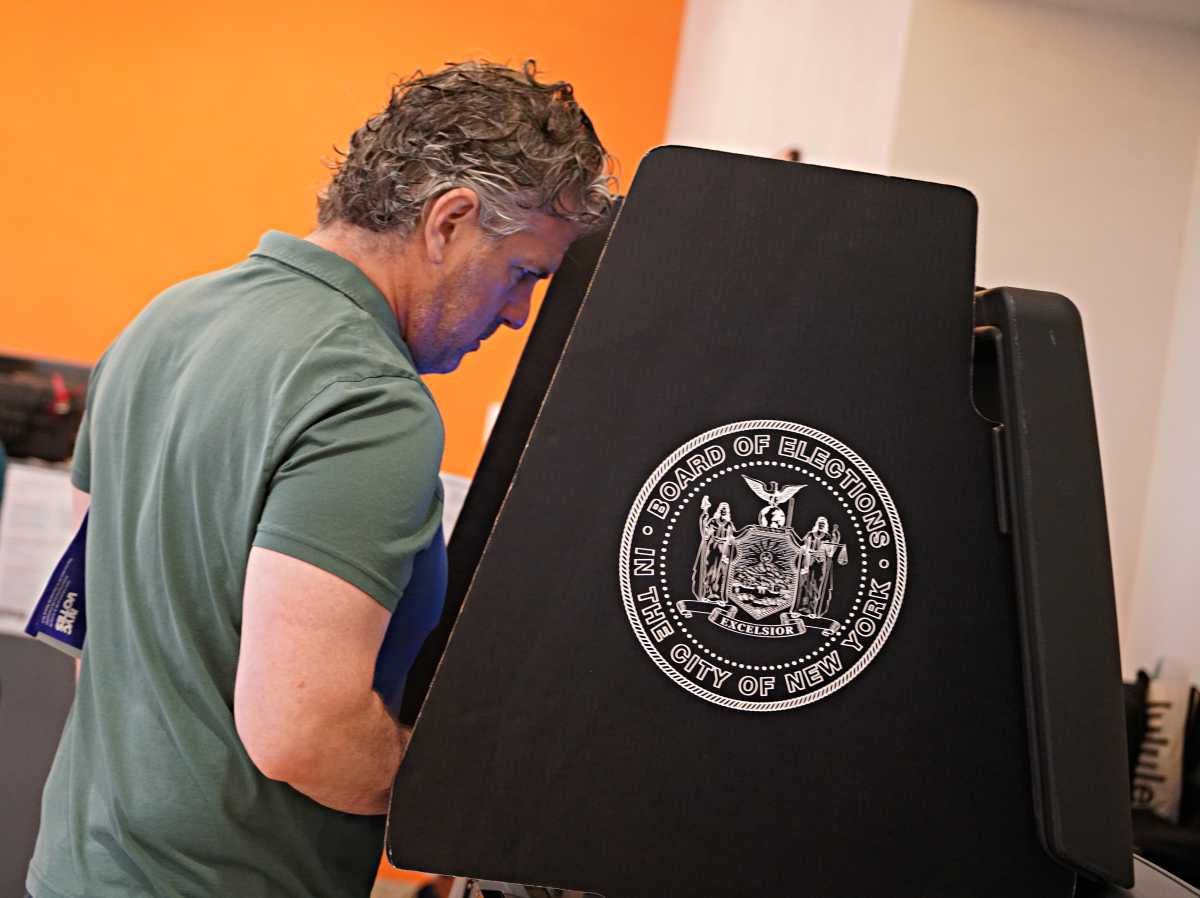Filmmaker documents Al Jazeera as the Arab network covers U.S. invasion
A first rate film, “Control Room” arrives in theaters in the wake of revelations about American torture of Iraqi detainees. Director Jehane Noujaim films the workings of Al Jazeera, the Arabic TV station, from the onset of America’s invasion of Iraq until the fall of Baghdad.
Al Jazeera has been strongly criticized as a font of anti-American propaganda by right wing American politicians. However, the network is not exactly beloved by most Arab governments either, though the network, often termed independent, is in fact funded in part by the Qatari emir. The journalists Noujaim interviews don’t hate the United States, Instead, they express an ambivalence towards it, voicing respect for the ideals of democracy and freedom of speech, which they’d like to bring to the Arab world, while expressing the utmost cynicism toward U.S. foreign policy.
Beginning with Pres. George W. Bush’s announcement to invade Iraq, “Control Room” depicts everyday life at the network’s offices in Qatar. The arc of the invasion provides the storyline. Noujaim introduces us to a memorable cast of characters. The three most prominent are Al Jazeera producer Samir Khader, journalist Hassan Ibrahim, and American military press officer Lt. Josh Rushing.
None of these men sees the world in black and white terms. Khader speaks of exchanging the “Arab nightmare” for the “American dream” and says that he’d be willing to work for Fox News and wants his children to go to college in the U.S. Ibrahim expresses his faith in the American people’s resistance to their government’s actions. Khader is a dapper, somewhat cynical man, while Ibrahim is more despondent. Watching footage of the bombing of Baghdad being bombed, Khader moans, “Democracy.”
Rushing, in contrast, believes in the American military mission, while well aware of his own limitations and biases. He confesses feeling nauseated by images of dead American soldiers, and less affected by footage of dead Iraqis.
Al Jazeera’s depiction of the dead and injured proves to be the most controversial aspect of its war coverage. The network provided a perspective missing from the American media—a real sense of the war’s consequences for civilians. Embedded Western journalists couldn’t help but give a sanitized perspective. Al Jazeera shows blood and guts. “Control Room” includes many of these grisly images, which are not for the faint of heart. Such coverage raises the specter of sensationalism, a possibility the film unfortunately never addresses.
Whatever one’s position on the war, it’s valuable for Americans to try to understand the rationale behind popular disdain for our country in the Arab world. The blunt skepticism Kahder, Ibrahim, and other Al Jazeera journalists bring to their discussion of American policy are revealing. Of particular interest is the fact that three of the journalists argue that the images of Iraqis tearing down the statue of Saddam Hussein were staged, claiming that the crowd who greeted American troops didn’t speak Arabic with Iraqi accents. Several times the film underscores the fact that most of the Arab world equates America with Israel, and the occupation of Baghdad with that of the West Bank and the Gaza Strip.
Noujaim devotes relatively little time to interviewing American journalists, yet one can’t help being impressed and charmed by Rushing. His sincerity is refreshing and even people who disagree with his opinions will probably like him. Although the director’s sympathies clearly lie with Al Jazeera, “Control Room” is not a simplistic pro-Arab, anti-war diatribe. Instead, it’s a testament to the vital importance of acknowledging civilian perspectives in an occupied country.
Noujaim, who previously co-directed the dot-com documentary, “Startup.com,” was born in Egypt and educated in the U.S., where she now lives. She brings a balanced perspective to the Iraq war, a necessary antidote both to the American media’s xenophobia and to typical Arab anti-Americanism. American TV news tends to glean sound bites and package as entertainment events that warrant more thorough exploration. “Control Room” honors that mission in acknowledging the complexity of the real world.



































